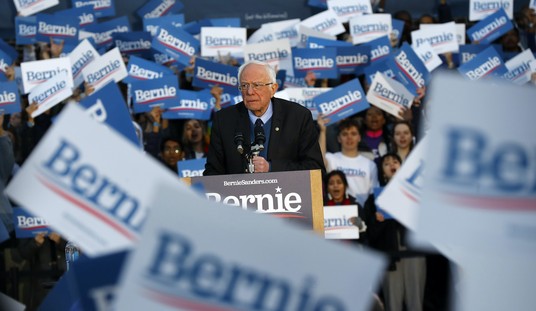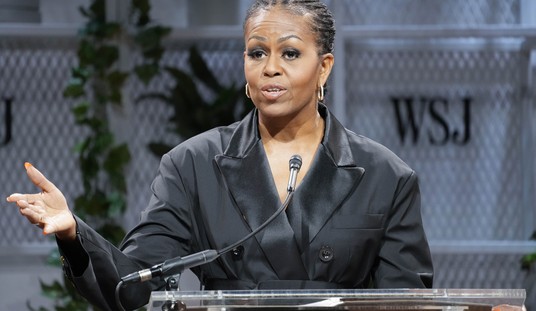If Reuters’ sources are correct, Donald Trump didn’t need to reach very far to finally select his new Solicitor General. Noel Francisco has served as principal deputy Solicitor General over the past few weeks, which meant that he had the top job on an acting basis until now anyway. The Senate will have to confirm him first before Francisco can officially take the job:
President Donald Trump is to nominate Washington lawyer Noel Francisco for the position of solicitor general, the government’s top advocate before the U.S. Supreme Court, according to two sources familiar with the hiring process.
The role of Solicitor General doesn’t usually make too many headlines, but that’s almost certain to change in the next four years. With the Trump administration planning for disruption and the “deconstruction of the administrative state,” though, the White House will spend a lot of time in court — and it needs a top-flight legal team to represent it. The chaotic reaction to the court challenges of the first “travel ban” executive order demonstrated conclusively the critical need for expert litigators on the front lines.
Interestingly, Francisco had a hand in that defense, as AllGov noted two weeks ago:
Francisco quickly found himself in the midst of a prominent case as acting solicitor general when he had to take the government’s side in arguing that Trump’s travel ban should be implemented. In a brief, he argued that “The power to expel or exclude aliens is a fundamental sovereign attribute, delegated by Congress to the executive branch of government and largely immune from judicial control.” When a partner of his former employer, Jones Day, filed an amicus brief opposing the order, Francisco was forced recuse himself from further involvement in the case.
Francisco is not an unknown quantity. He began his law career as a clerk for two well-regarded conservative jurists, Judge J. Michael Luttig on the 4th Circuit and then for legendary originalist Justice Antonin Scalia. A few years later he moved into the Bush administration, first in the Office of Counsel in the White House, and then as a deputy assistant Attorney General. From 2005 until now, Francisco was a partner at the Washington DC law firm Jones Day, where he chaired the firm’s Government Regulation Practice — a handy background for deconstructing an administrative state, to say the least. On top of that, AllGov notes that Ted Cruz is one of Francisco’s close friends.
Above The Law’s David Lat recounts the circuitous route that landed Francisco the position:
Back in December, I identified Francisco and his fellow Jones Day partner, Greg Katsas, as the two leading contenders for the post. With Katsas over in the White House Counsel’s office, that would seem to leave Francisco as the last man standing.
But that is not, of course, how this whole fascinating process unfolded. Francisco and Katsas got replaced by two different frontrunners, George Conway of Wachtell Lipton and Chuck Cooper of Cooper & Kirk. Cooper seemed to be on the brink of clinching the brass ring, until he made a surprise withdrawal at the eleventh hour.
The speculation then turned to other contenders, including Miguel Estrada of Gibson Dunn, Chris Landau of Kirkland & Ellis, and Kannon Shanmugam of Williams & Connolly. Estrada, a former D.C. Circuit nominee, seemed to emerge as the frontrunner — until he said “no thanks” in a rather colorful way. [UPDATE (4:50 p.m.): Actually, according to a source familiar with the process, Estrada was never in the running — although Landau and Shanmugam were.]
If you got exhausted by this whole confounding process, you’re not alone. The powers that be apparently got worn down too — and returned to Francisco, a highly respected Supreme Court and appellate advocate who is eminently qualified for the post.
Worth noting: George Conway is the husband of Kellyanne Conway, and had been the subject of much speculation over this position. Mrs. Conway told Hugh Hewitt that Mr. Conway wasn’t likely to end up with the job. For whatever reason, she turned out to be right. One has to wonder whether Senate Democrats would have used a Conway nomination to take shots at Trump and his White House counselor, and whether that entered into the consideration for the post — or whether, as Lat writes, Francisco was the natural front-runner all along.
Francisco will have to weather that same trial, but there doesn’t appear to be much reason for sharp opposition. On the other hand, Francisco’s successes at the Supreme Court might make some Senate Democrats grind their teeth:
Most recently, he represented Republican former Virginia Governor Robert McDonnell in a successful attempt to throw out corruption convictions. The court in June ruled 8-0 in favor of McDonnell.
In another case decided last year, he represented religious nonprofits that sought an exemption from a provision of the Obamacare health law that requires employers to provide women workers with health insurance that includes contraception coverage. The high court in May sidestepped a major ruling in that case by sending it back to a lower court.
In the third case, Francisco led a business industry-led challenge to presidential appointment powers, resulting in a 2014 ruling that limited the ability of the White House to fill positions without Senate approval.
Clearly, he’s qualified for the position. Less clear is why this position requires Senate confirmation at all. It does not cross over into shared authority between the executive and legislative branches, as do other Cabinet departments and agencies. Because of that, don’t expect too rough a ride for Francisco, with the exception of some opportunities to hammer the administration over the so-called “travel ban.”








Join the conversation as a VIP Member